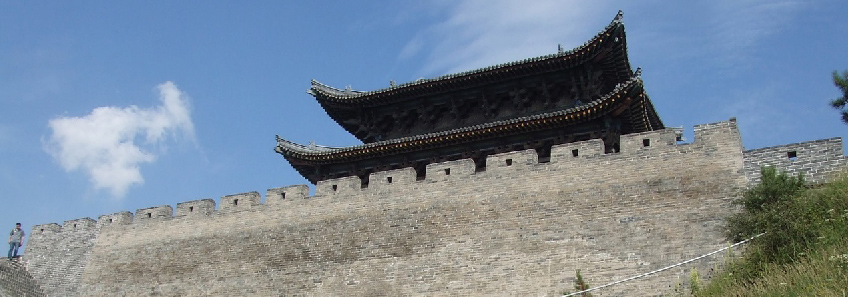http://yakitori.lit.osaka-cu.ac.jp/user/toyoshi/
The Asian History course was initially spearheaded by Hajime Oshibuchi (history of Northern Asia), Motonosuke Amano (history of Chinese agriculture), Hachiro Nakayama (history of Ming and Qing China), and Taketoshi Sato (history of ancient China). After Hajime Oshibuchi’s retirement, only three professors led the course. Shigeta Toku (history of Ming and Qing social economy) succeeded Motonosuke Amano. Following Shigeta’s death, Professors Akira Morita (history of Chinese irrigation) and Hideto Kitamura (history of the Yi Dynasty in Goryeo), who succeeded Hachiro Nakayama, were appointed. After this, Keiji Nakamura (history of the Six Dynasties of China) joined, leading to a total of four professors. After the retirement of Taketoshi Sato, we welcomed Masami Arai (history of Turkey) to broaden our horizons in Asian history. Masami Arai moved to another position, and we were subsequently joined by Shinzo Hayase (history of Southeast Asia); Akira Morita’s successor, Wataru Iijima (history of modern China); and Shigeki Hirata (history of early modern Song and Yuan China). In March 2000, Hideto Kitamura retired from his post, and again, there were three professors, with Toru Inoue [modern Chinese history from the Ming and Qing dynasties up to the era of the Republic of China (ROC)], taking up his post in April 2014. In April 2009, Chikayoshi Nomura (economic history of India) joined, and in March 2010, Keiji Nakamura retired. In April 2012, Masayuki Ueno (history of the Ottoman Empire) joined. Toru Inoue retired in March 2019, and Kenya Watanabe (history of the Yuan dynasty) joined in April 2019. Chikayoshi Nomura will move to another position in March 2020, and a successor is scheduled to be appointed in April 2021.
Notably, during the abovementioned period, Taketoshi Sato and Motonosuke Amano were awarded the Japan Academy Prize; this aspect made a significant contribution to the development of the Asian History course.
The research topics of the current staff are detailed below.
- Professor Shigeki Hirata is associated with the early modern Chinese history, focusing on the history of political structures, especially the bureaucratic system of imperial examinations.
- Associate Professor Kenya Watanabe is associated with the History of the Yuan dynasty and history of the modern Sino–Japanese academic exchange.
- Associate Professor Masayuki Ueno is associated with the history of the Ottoman Empire and Armenia.
In addition to the abovementioned research topics of the staff members, the Asian History course covers various topics in the history of China, Central Asia, and West Asia from ancient times to the modern era, thus aiming to approach the historical structures of human societies from a macroscopic viewpoint by developing a unique perspective on urban and maritime settings. While working on their research, students will use excavated ancient Chinese historical materials and compiled historical materials including state-approved histories, recorded accounts, institutional histories, anthologies, local histories, genealogies, court documents, field survey materials (discovered during the ROC period), royal genealogies and oral histories from field surveys, and economic and demographic history materials for analysis. In examining the history of the Ottoman Empire, students will use administrative documents of the central government, historical publications, and diplomatic documents of the European countries.
Currently, there are 12 students in the master’s program and 9 students in the doctoral program enrolled in the graduate school. In addition, the social history of the Song dynasty, the history of regional communities in the Song and Yuan dynasties, the sociocultural history of the Ming and Qing dynasties, the history of the early modern Ottoman Empire, and the modern history of Armenia are the various research topics. After completing the program, some graduate students have become faculty members at universities and high schools or in the public sector while some others have developed their talents in the context of business.
Following are a few examples of the published issues and materials:
OCU Asian History, No. 14 (March 2005)
OCU Asian History, Supplementary Special Issue (March 2005)
OCU Asian History, No. 15 (November 2006)
OCU Asian History, Supplementary Special Issue, “New Possibilities for the Study of Literary Materials 1” (May 2006)
OCU Asian History, Supplementary Special Issue, “New Possibilities for the Study of Literary Materials 2” (June 2007)
OCU Asian History, Supplementary Special Issue, “New Possibilities for the Study of Literary Materials 3” (December 2007)
OCU Asian History, No. 16 (December 2008)
OCU Asian History, Supplementary Special Issue “Transportation, Trade, and State Foreign Policy in the Maritime World of East Asia” (January 2009)
OCU Asian History, No. 17 (December 2010)
OCU Asian History, No. 18 (December 2017)
OCU Asian History, No. 19 (September 2019)
The Asian History course has been actively involved in the Graduate School of Human Sciences COE Program “Humanities Research for the Creation of Urban Culture” (AY 2002–AY 2006). Having completed this program, we continue to be involved in the project “Interdisciplinary Research on the Cultural Power of Cities in the Asian Maritime World,” a priority research project led by the Urban-Culture Research Center (Graduate School of Human Sciences). In addition to continuing to maintain joint research initiatives with the Urban-Culture Research Center overseas bases (subcenters) and the Institute of History at the Chinese Academy of Social Sciences, we have also launched new joint research projects with the Department of History of Sun Yat-sen University, the Institute of Modern Chinese Society at Shanghai Normal University, the School of Humanities and Social Sciences of Guangzhou University, and the Xixia Research Institute at Ningxia University.
News
Under construction.Staff
| Professor Shigeki Hirata | Professor Shigeki Hirata deals with early modern history of China, focusing on the history of political structures, especially the bureaucratic system and the imperial examinations. |
|---|---|
| Professor Kenya Watanabe | Associate Professor Kenya Watanabe is associated with the history of the Yuan dynasty and the history of modern Sino–Japanese academic exchange. |
| Associate Professor Mami Hamamoto | Central Eurasian history, Russian history |
| Associate Professor Masayuki Ueno | Associate Professor Masayuki Ueno deals with the history of the Ottoman Empire. |

